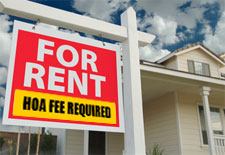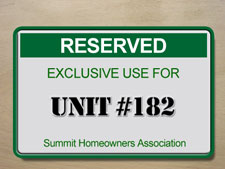*Asked & Answered
Asked – Is it true that the law requires an Association to send notifications and communications to the homeowners via USPS only?
Answered – No. An Association’s governing documents may require that certain types of communications with homeowners be sent via USPS. However, in the event that no such requirements are contained in an Association’s governing documents, the California Civil Code may still require USPS for certain communications. One example would be a Notice of Lien, where an “[A]ssociation must notify the owner by certified mail.” Civil Code § 1367.1(a).
However, the homeowner can also consent to receive certain communications by other means besides USPS, such as electronic mail. An example is the Association’s Annual Update of Reserve Study, which may be delivered by “E-Mail, facsimile, or other electronic means, if the recipient has agreed to that method of delivery.” Civil Code §§ 1350.7(b)(3), 1363.005.
|
Be sure to review your Association’s governing documents to determine what provisions, if any, govern how notifications and communications are made between the Association and the homeowners. If the governing documents seem to be ambiguous, consult your Association’s legal counsel. |
To submit questions to Tinnelly Law Group, click here.
 HOA Lawyer Blog
HOA Lawyer Blog


 TINNELLY LAW GROUP is proud to announce it’s newest member of the team:
TINNELLY LAW GROUP is proud to announce it’s newest member of the team: 

 The additional burdens that renters impose can be substantial for many common interest developments–especially those developments designed as “recreational communities.” Renters who lack a sense of investment in the community or who are unfamiliar with its operational structure can place greater strain on the community’s management and maintenance resources. This may not only frustrate other owners within the community, but may also significantly impact the financial health of the Homeowners Association (“HOA”) formed to preserve and protect it.
The additional burdens that renters impose can be substantial for many common interest developments–especially those developments designed as “recreational communities.” Renters who lack a sense of investment in the community or who are unfamiliar with its operational structure can place greater strain on the community’s management and maintenance resources. This may not only frustrate other owners within the community, but may also significantly impact the financial health of the Homeowners Association (“HOA”) formed to preserve and protect it.

 In July of this year, Governor Brown signed
In July of this year, Governor Brown signed 
